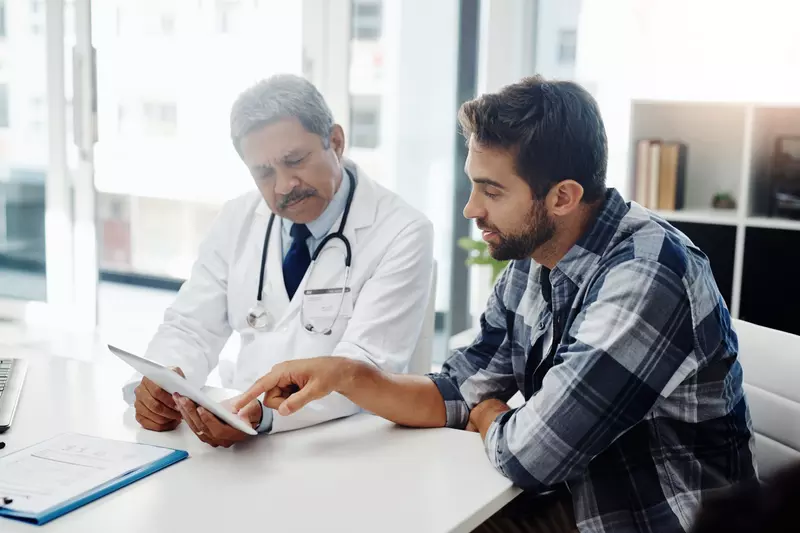- AdventHealth

Choose the health content that’s right for you, and get it delivered right in your inbox.
It’s estimated that 1 in 10 colon cancers and 1 in 4 rectal cancers will be diagnosed in adults younger than 50 years old within the next decade. And with new cancer diagnoses expected to break records this year, it’s vital that we’re proactive through taking steps to protect our health.
Keep reading to learn why our experts, like our board-certified colon and rectal surgeon, Ahmed Allawi, MD, MBChB, think colorectal cancer rates are rising, particularly in younger adults, and what we can do to influence the statistics in the right direction.
What is Colorectal Cancer?
“Colorectal cancer refers to the group of cancers that impact the colon, rectum or anus,” explains Dr. Allawi. “It’s the third most common type of cancer worldwide with nearly 2 million new diagnoses each year since 2020. The projected number for new diagnoses for 2024, however, tops 2 million for the first time.”
Colorectal Cancer Risk Factors
Historically, potential risk factors for colorectal cancer include:
- Being African American
- Family history of colorectal cancer — especially at early ages
- Heavy alcohol use
- Inactivity
- Inflammatory bowel disease (IBS) such as ulcerative colitis or Crohn’s disease
- Obesity
- Smoking
- Poor nutrition
Why Are Colorectal Cancer Rates Rising in Younger People?
But now, disturbingly, colorectal cancers are being diagnosed in young adults at frightening rates. Why are colorectal cancer rates going up in younger people? Some theories include a Westernized diet, obesity, antibiotic usage and alterations in the gut microbiome are at play. “Younger patients typically have advanced stage colorectal cancer”, says Dr. Allawi. “Patients with early-onset colorectal cancer experience similar cancer outcomes as their older counterparts.”
Researchers are looking into whether certain diets, dietary supplements or medications can lower a person’s risk of colorectal cancer.
Early Detection Is Key
“Early detection of colon and rectal cancer is essential to early diagnosis and effective treatment,” Dr. Allawi explains. “Colon and rectal cancer screening uses the same process and includes stool tests, colonoscopy, flexible sigmoidoscopy and polyp removal.”
Why is early detection so important? If diagnosed early, colorectal cancer has a five-year survival rate of about 90%. The primary treatment is surgery, though doctors use chemotherapy for advanced colon cancer. Other approaches include radiation therapy, immunotherapy and targeted drug therapy.
The Impact of Colorectal Cancer on Black Communities
Colorectal cancer disproportionately affects Black communities. Their rates are the highest of any racial or ethnic group in the United States. African Americans are about 20% more likely to get colorectal cancer, which is influenced by everything from environmental and biological factors to health care access and lack thereof.
Red Flags You Can’t Ignore: Symptoms of Colorectal Cancer
“If you have colorectal cancer symptoms, seek expert help about warning signs as soon as possible — especially blood in your stool or rectal bleeding,” Dr. Allawi advises.
Signs of colorectal cancer include:
- Anemia
- Abdominal cramps
- Bloating
- Blood in the toilet after a bowel movement
- Changes in bowel habits
- Low back pain
- Unexplained fatigue
- Unexplained weight loss
- Urge to have a bowel movement when there’s no need
Marching Toward Colorectal Cancer Awareness
Are you or someone you know impacted by colorectal cancer? Remember that community can be a healing force for any cancer patient. And our cancer-care community at AdventHealth will stay with you and your family every step of the way no matter the challenges you face.
We’re here to support your healing in body, mind and spirit. Visit us here to learn how we can help you throughout your journey, and click here to request an appointment with Ahmed Allawi, MD, MBChB.



